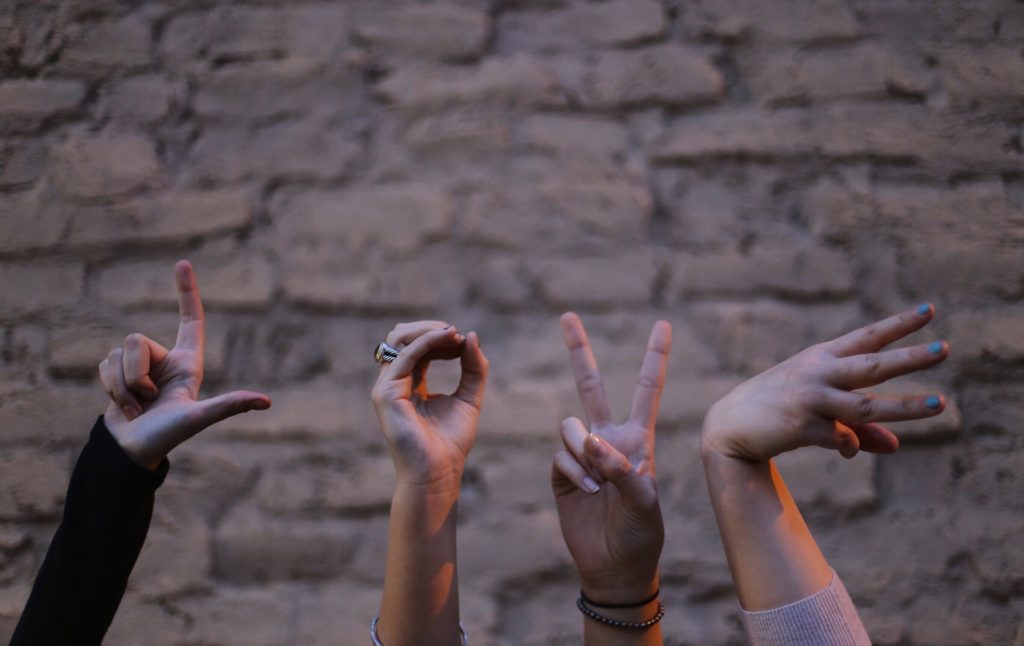A Travel Guide for Life, Faith, and Relationships!
On a regular basis, I circle back to this reality: We’re all broken.
We all fail.
We all cheat.
We all lie.
We all pretend.
We all say one thing and do another.
All of us.
It’s not all the time, and we might even go an hour or two without sinning, but something always betrays our new and true identity in Christ. And we blow it every stinkin’ day.
A thought. A look. A word. Something stupid that misses the mark of perfection.
And what’s worse and a bit crazy is that we all still tend to think we’re better than others.
Our self-talk says, Okay, I might not be as good as Mother Teresa, but I’m better than him. I’m probably never going to be as perfect as Billy Graham, but at least I’m not as messed up as her.
But none of us is perfect, and we’re no longer naked in Eden.

In truth, we’re all hiding, still trying to cover our shame rather than own it.
Fact check: we’re human. Which means, on this side of eternity, you and I will always struggle with our old nature that is nothing like our new nature in Jesus.
As a Christ-follower, and because of what Jesus did on the cross, I don’t live bound by sin or trapped in hopelessness. I am a new creature in Christ. I am perfect in my position before God. However, I still am far from perfect in my practice and day-to-day experience. I have a long way to grow--and so do you.
Yes, we’re in a new Eden now—in a perfect relational place with God because of Jesus—but still hiding and painfully aware of our imperfections.
So, what should we do? How should we live?
Well, here’s a radical idea: Stop hiding.

If we all still sin (and we all do), then why wouldn’t we just step out of the darkness, own it, and confess our brokenness to one another? Why hide in the shadows when we can live free in the light? James, the half-brother of Jesus, said that confession is the path to healing (James 5:16).
Furthermore, if we all are still broken (and we are), then why would we ever treat anyone like we are better than they are? Why would we cast stones at others? And why do we get so irritated when someone lets us down, as if we’ve never done the same to others--many others?
As the saying goes, “If you spot it, you got it!”

I had lunch with a friend the other day. As he and I were talking, it dawned on me, this guy has seriously let me down; he’s failed me, and he’s a mess. Of course, he was absolutely thinking the same about me!
But in the midst of our conversation, I had an aha moment.
Jesus said, “Love one another as I have loved you” (John 15:12).
For about 60 years, I’ve read that passage and put the emphasis on loving as Jesus loved. Serve. Care. Die. Be the bigger person.
But what hit me in the face like a snowball out of nowhere is the context of this passage. Jesus said, “ as I have loved you.” And the you Jesus was speaking to in that text was a bunch of screw-ups.
The you was a guy like Judas, a betrayer who loved money more than Jesus. The you included a couple of sets of brothers who were always jockeying for power and position. The you was Peter, who stepped in a pile of crap on a regular basis.
And still Jesus said, “Love others who are imperfect. Love others who will fail you. Love others who let you down. Love others who are prone to failure and sin. Just love one another above all. Love as I have loved you boneheads.”
Years later, Peter would write, “Above all, love each other deeply, because love covers over a multitude of sins” (1 Peter 4:8). Whose sins? Yours and mine. Peter knew.
Of course, we love like Jesus, but we get to love who Jesus loves—the broken. We don’t simply acknowledge imperfections; we choose to love others (and ourselves) despite them.
If I haven’t already done so, at some point in the not-too-distant future, I will fail you. I will disappoint you. (And by the way, the same is true about you.)
We can get stuck there and wallow in our frustration and disappointments.
Or . . .
We can love.

Apparently, God knew we would all struggle with sin. He knew we would fail each other. He knew we would wound each other on a far too regular basis.
Nevertheless, He calls us to love one another even when—especially when—we hurt and disappoint.
To love someone as Jesus loves us is to look them in the eye and say, “I love you, warts, wrinkles, failures and all. And I will embrace and accept you the same way I am loved by the Father.”
To be clear, we should grow. We must mature. We will get better. And our humanness can never be used as an excuse to rationalize or justify any sin against another.
Of course, sin matters.
But love matters more.

Why?
Because without love, nothing changes and no one grows.
Without love, there is no hope of maintaining a lasting relationship with anyone.
Without love, we might as well give up on people who will eventually let us down.
But love is the glue that keeps us together.
So love, as another guy who was far from perfect once wrote, “Let all you do be done in love” (I Cor. 16:14).
Let love be bigger than your hurts.
Let love be greater than the undeniable brokenness and indisputable failures of others.
Above all and despite all, love.

Bear with each other and forgive one another
if any of you has a grievance against someone.
Forgive as the Lord forgave you.
And over all these virtues put on love.
Colossians 3:13-14 (NIV)



